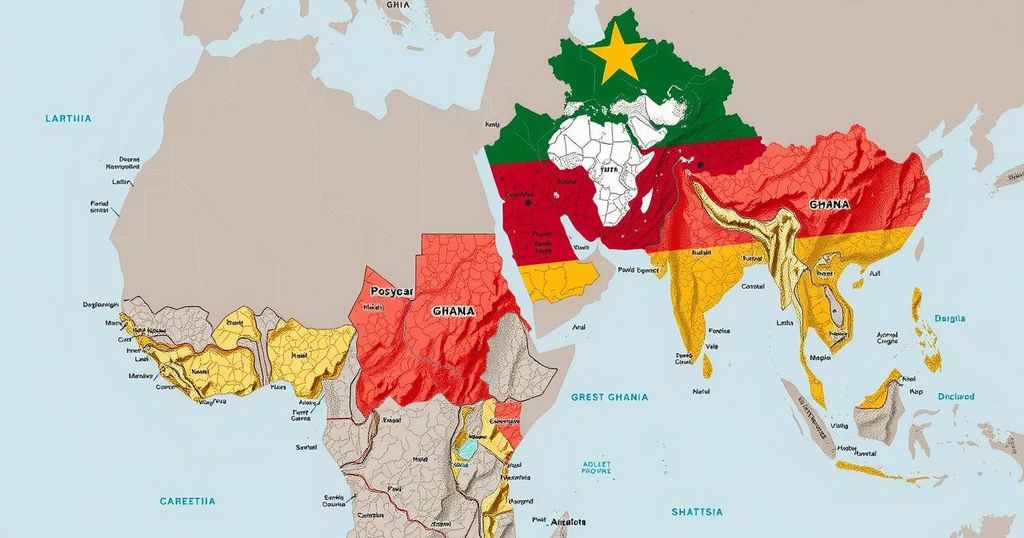John Mahama won the presidency in Ghana’s December elections, marking a notable victory for the opposition over the ruling NPP, plagued by issues such as high inflation and corruption. This electoral success aligns with a broader trend of opposition parties gaining power across Africa amidst a year of notable elections. Mahama’s victory reflects voter frustrations with current governance and the desire for responsive leadership.
Ghana concluded a remarkable year with the election of John Mahama, a seasoned opposition figure, as president following his decisive victory over Vice-President Mahamadu Bawumia of the ruling New Patriotic Party (NPP). Mahama, previously defeated in two elections by Nana Akufo-Addo, led the National Democratic Congress (NDC) to reclaim the presidency amidst a growing global trend of opposition success in elections. The NPP’s inability to maintain support, attributed to issues such as soaring inflation and rampant corruption, forced them into a new position as the opposition party.
This electoral shift in Ghana is part of a broader wave of anti-incumbent sentiment witnessed across various nations, particularly in Africa, where several opposition parties have recently ascended to power in nations like Senegal, Mauritius, and Botswana. Such trends reflect the electorate’s demand for accountability and responsiveness to their pressing concerns. Reports indicate that dissatisfaction with the ruling party’s governance led to a significant decline in voter turnout among NPP supporters, culminating in Bawumia conceding defeat early in the election process.
The implications of this election extend beyond Ghana’s borders, reinforcing similarities with global political dynamics, such as the return to power of figures like U.S. President-elect Donald Trump. This heralds a potential shift in governance styles across regions, as citizens express a collective desire for change from the status quo, which they deem unresponsive to their needs. The recent election outcomes underscore the shifting landscape of democratic governance, emphasizing the need for political parties to remain attuned to the electorate’s needs and concerns.
The political landscape in Ghana showcases a history of competitive elections, often necessitating run-off rounds due to close results. The recent elections have highlighted significant challenges for the ruling party, including economic hardships marked by high inflation and environmental issues stemming from illegal gold mining activities. These elements have contributed to a perception of detachment among political elites, prompting citizens to seek alternatives in opposition parties. Ghana’s experience is reflective of a larger trend observed throughout Africa in 2023, where long-serving governments faced increased scrutiny and opposition successes, suggesting a broader demand for democratic reforms.
In conclusion, Ghana’s recent presidential elections exemplify a significant shift towards opposition victories within a context of global political change. John Mahama’s return to the presidency signals not only the NDC’s resurgence but also a response from citizens against the ruling NPP’s governance failures. This election represents a broader anti-incumbent wave throughout Africa, compelling long-ruling parties to evaluate their approaches and reconnect with the electorate’s needs, a phenomenon likely to influence political dynamics in the region for the foreseeable future.
Original Source: www.worldpoliticsreview.com






